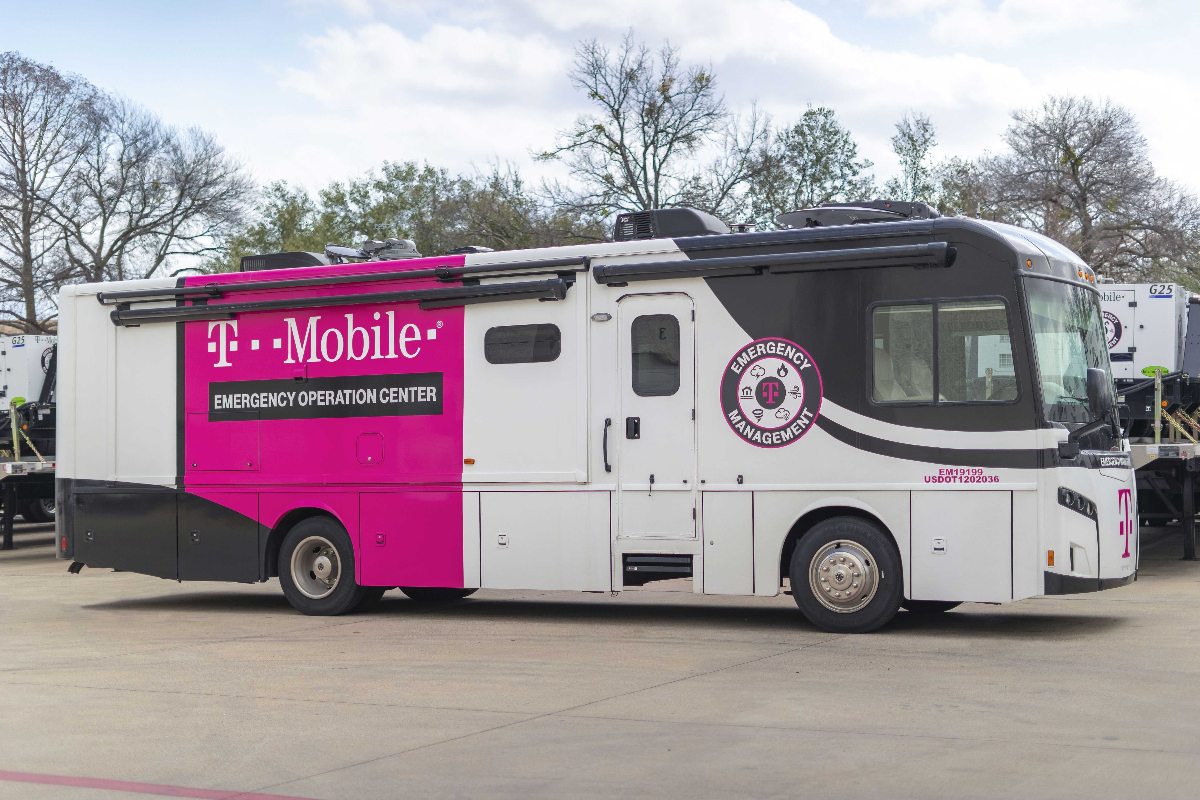On Tuesday, T-Mobile’s president of technology, Ulf Ewaldsson, put out a call to push the U.S. government to unlock a swatch of spectrum that it purchased a year ago, but still remains out of reach.
The argument was simple, yet compelling: We paid $304 million on the radio airwaves, so let us utilize them to improve our wireless service. That would lead to better coverage overall, and potentially more homes able to get its 5G home internet offering.
The reason why T-Mobile still hasn’t been able to access the spectrum, however, is more complicated.
T-Mobile is collateral damage in a political and technical battle that has tangled up the process of doling out spectrum and frozen the agency in charge of that process, the Federal Communications Commission. It also raises the broader question of how quickly wireless carriers will be able to get access to additional radio airwaves in the future.
The crux of the issue was Congress failing to extend the FCC’s authority to hold spectrum auctions. The Defense Department and the National Telecommunications and Information Administration needed more time to conduct a test of potential interference with a specific band of spectrum, but because Senate talks over an extension stalled, the agency for the first time lost its authority over spectrum auctions, something it’s managed for three decades.
“With Congress returning to Washington shortly, reinstating auction authority needs to be an immediate priority,” Ewaldsson said.
The Importance of Spectrum
Wireless service is only truly wireless for a short distance – typically from the antenna in your smartphone to the nearest radio tower 100 feet for a mile or two away, before moving to a physical fiber-optic line back to a central server. The information that you’re looking to send or receive, anything from a phone call to the latest Twitch stream, is ferried over the air through one of these dedicated bands of spectrum.
As we use more and more data, the demand for more spectrum likewise increases. That’s why wireless executives call spectrum “the lifeblood of the industry.”
A year ago, the FCC held an auction to dole out spectrum in the 2.5 Ghz band. In this case, T-Mobile emerged the big winner, spending hundreds of millions of dollars on the licenses. That frequency, often referred to as mid-band spectrum, is considered valuable because it hits that sweet mix of decent range and high speeds.
Ewaldsson said those airwaves could be used immediately to bulk up the capacity in its network – like adding an extra lane or two to its 5G highway.
More importantly, a lot of the licenses covered rural areas that typically don’t get a lot of traditional internet service or decent wireless coverage. Ewaldsson noted that 61 of the 109 operational Historically Black Colleges and Universities are in locations that “would be immediately enhanced with improved 5G data speeds mobile and home internet services.”
He added that the capacity could also come in handy in emergency situations like hurricane season, where a mobile cell on wheel (COW) could be deployed using these radio airwaves to temporarily boost coverage if cell towers go down.
The service could also free up capacity to expand its 5G home business, which has been a huge area of growth for the company.
What’s Next?
Because the FCC no longer has the authority to dole out spectrum, T-Mobile was caught in a bind. It had already paid for the spectrum through the auction process, but the licenses could not be handed over to the carrier.
Ewaldson said he and four former FCC general counsels believe the agency has the right to grant special temporary authority over the licenses to T-Mobile, but “we also understand the FCC is concerned about getting its auction authority renewed – as it should be.”
Barring that is for Congress to move forward with reinstating the FCC’s authority. There’s a House bill, H.R. 3565, that would reinstate the authority, and Angelina Panettieri, a policy expert for the National League of Cities, said it has wide, bipartisan support.
FCC Chairwoman Jessica Rosenworcel also noted the importance earlier this month as she commemorated the 30th anniversary of when Congress first gave the agency authority over spectrum.
“FCC spectrum auctions have fueled American growth for three decades,” she said. “The agency has held 100 auctions and in the process raised more than $233 billion for the United States Treasury. It’s not just that these auctions are a good deal; they are a big reason why the United States leads the world in wireless innovation.”
But, as with all things in D.C, even a bill that everyone agrees is a good thing could still take a while to pass. But Ewaldsson warned of the consequences of moving slowly.
“The longer we wait to deploy the spectrum, the more Americans — especially rural and underserved communities — needlessly wait and competition suffers,” he said.

